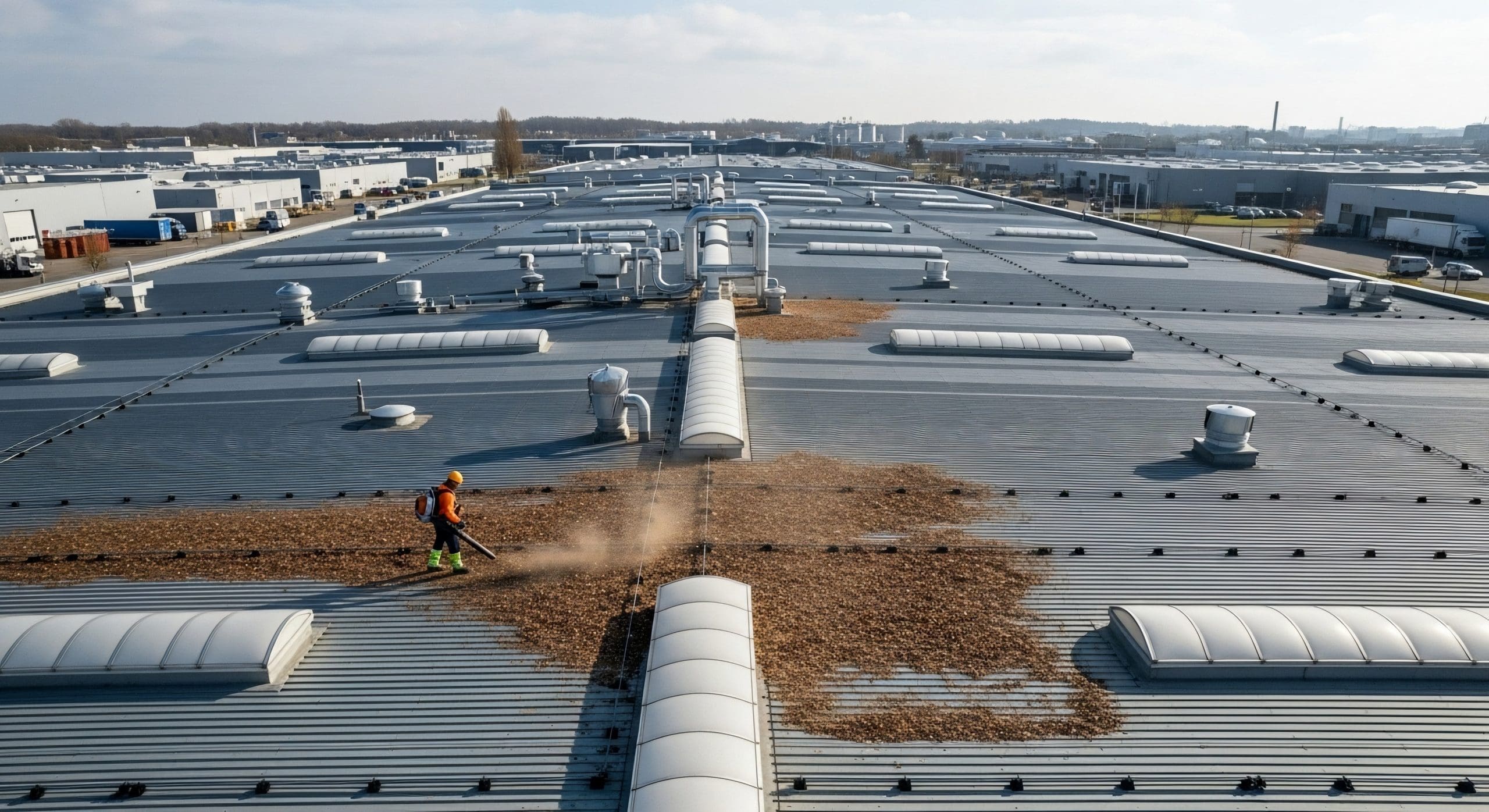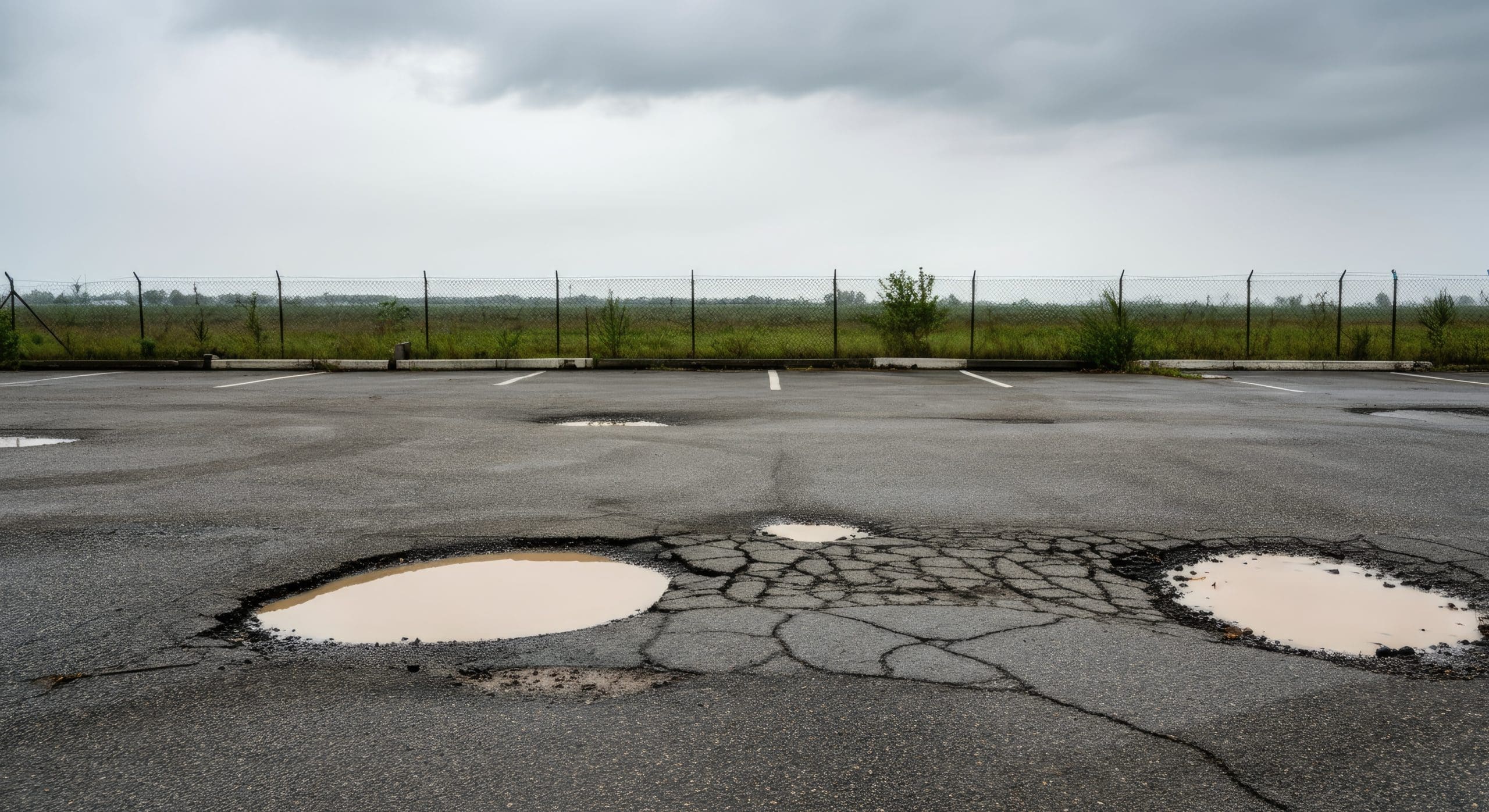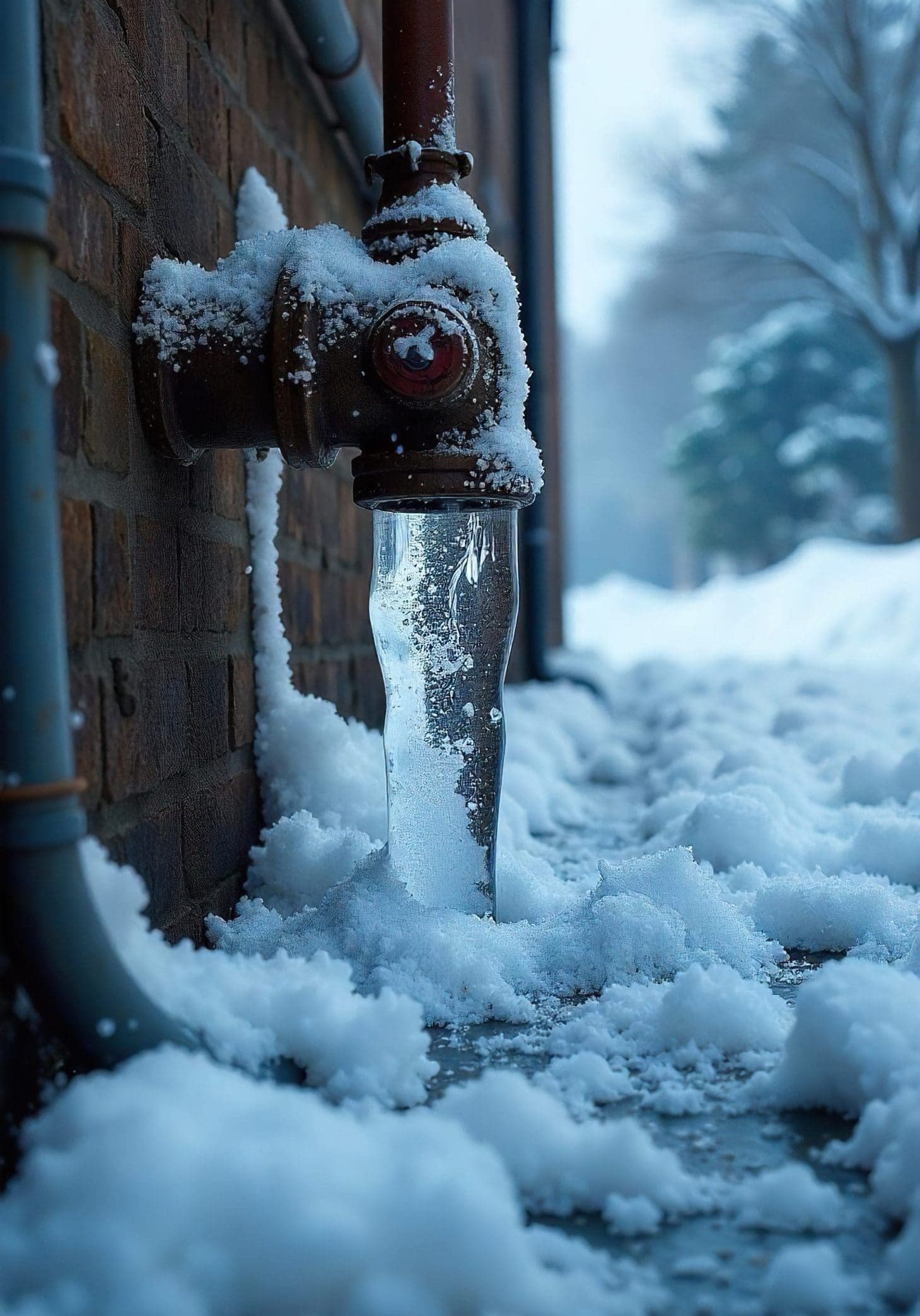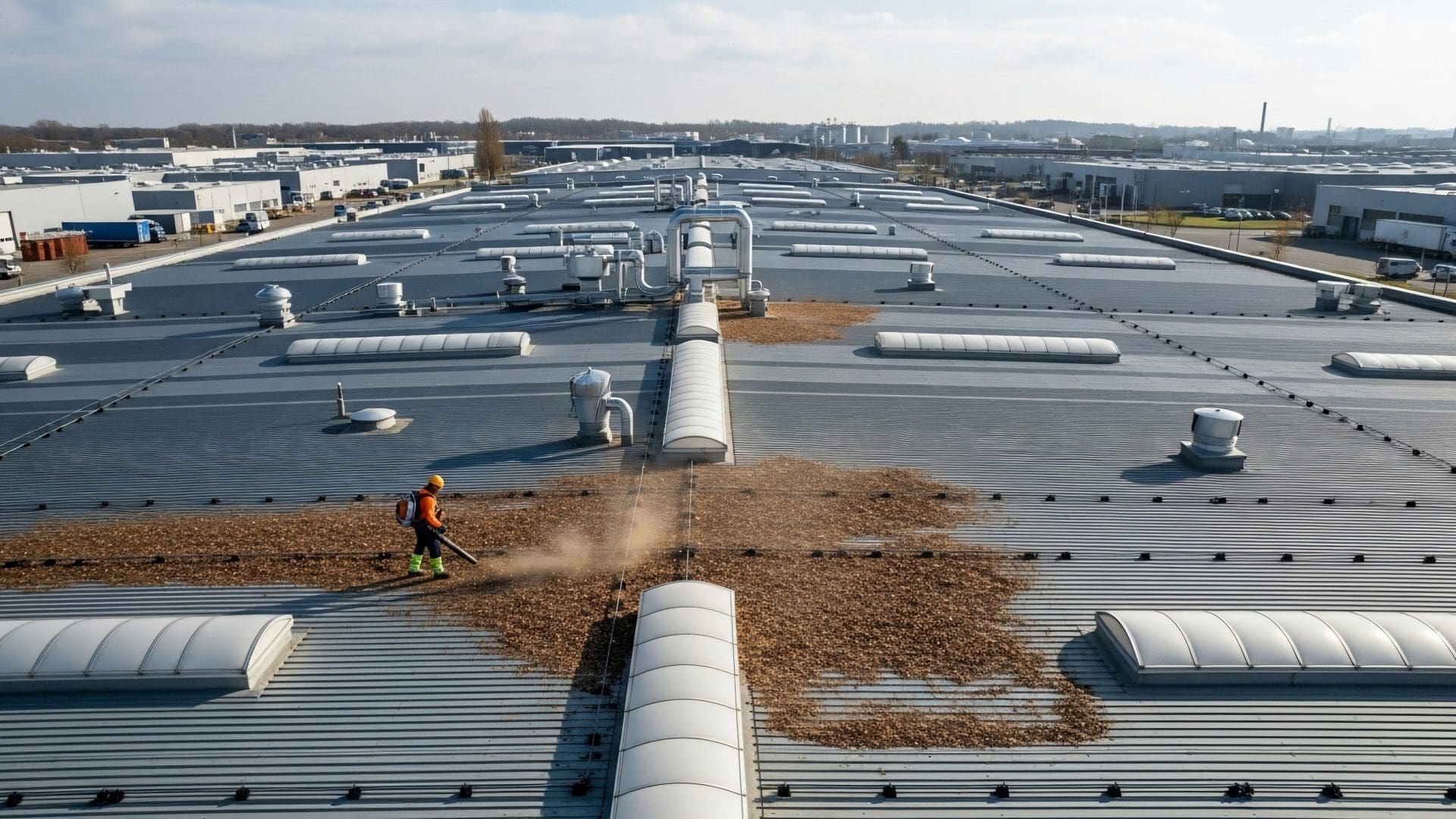
After helping property owners and tenants navigate Albany's unpredictable winters for years, we've seen the same costly mistakes happen over and over. The difference between a property that weathers the season smoothly and one that faces expensive emergency repairs often comes down to what happens in these next few weeks. Here are six things to pay attention to this fall to ensure your property is ready for the winter season.
1. Keep Roof Drains Clear of Leaves and Debris
Here's what we see every November: Property owners get that dreaded call about water pooling on their roof, usually right after the first heavy rain mixed with falling leaves. What started as a simple drainage issue becomes a significant repair bill that could easily reach five figures.
When drains are blocked, rain and melting snow have nowhere to go, leading to standing water, roof leaks, and potential structural damage that can plague you all winter long.
Here's what smart property owners do: Schedule a roof inspection in late fall to ensure drains, scuppers, and gutters are clear. Installing drain screens or leaf guards can also reduce buildup. If your building has a flat roof, consider adding a regular maintenance contract with a roofing company to inspect after heavy storms. A few proactive steps now can save thousands in water damage repairs later—trust us, we've seen the invoices.


2. Repair Pavement and Address Potholes
Albany winters are brutal on parking lots and walkways. When water seeps into cracks and freezes, it expands and turns small issues into dangerous potholes that can damage vehicles and create liability nightmares by spring.
Here's what smart property owners do: Walk the property and look for cracks, uneven areas, or potholes. Seal cracks and patch potholes before freezing temperatures arrive. Fresh sealcoating can also help extend the life of pavement and provide a cleaner appearance. By tackling these repairs in fall, you improve safety for vehicles and pedestrians while avoiding higher repair costs later. Plus, a well-maintained parking area makes a much better first impression on potential tenants or buyers.
3. Ask Your Landlord About Winter Maintenance Protocols
If you're a tenant, it's crucial to clarify who's responsible for snow removal, salting walkways, and maintaining parking lots during Albany winters. Every lease is different—some landlords handle all exterior maintenance, while others may require tenants to manage snow and ice around their entrances.
Here's what smart property owners do: Reach out to your landlord before the first snowfall to confirm the plan. Ask specific questions such as:
- Who plows the lot and how quickly after a storm?
- Is salt or sand applied regularly to prevent ice hazards?
- Who handles snow piling and removal if space runs out?
Understanding these protocols upfront will help prevent unsafe conditions and potential liability issues. Pro tip: If you're managing multiple properties or dealing with unresponsive landlords on maintenance issues, this might be a sign it's time to evaluate your current situation. We help property owners and tenants make these kinds of strategic decisions year-round.
4. Service Your Heating Systems Now
Heating systems often sit unused for months and then get pushed into full demand once Albany's cold hits hard. Without proper maintenance, they can break down when you need them most—usually on the coldest day of the year when every HVAC contractor in town is booked solid.
Here's what smart property owners do: Have a qualified HVAC contractor perform fall maintenance, including filter changes, checking burners, inspecting ductwork, and testing thermostats. For tenants, ask your landlord when the last inspection was performed and whether preventive service is scheduled. A tuned system not only ensures comfort but also reduces energy costs throughout winter—something your tenants will definitely notice on their utility bills.
5. Check Insulation and Weatherproofing
Small gaps and cracks around windows, doors, and loading docks can significantly increase heating costs during our long Albany winters. Poor insulation can also allow moisture to creep in, causing damage or mold over time that becomes a bigger headache come spring.
Here's what smart property owners do: Conduct a quick energy audit in the fall—inspect seals, caulking, and insulation. Weatherstripping is an inexpensive solution for drafty doors and windows. For larger issues, consult a contractor to add insulation in critical areas such as attics or walls. This upfront investment pays for itself through lower utility bills and a more comfortable workplace that keeps tenants happy.
6. Plan for Emergency Preparedness
Albany winter storms can bring unexpected power outages, icy sidewalks, and dangerous travel conditions. Having an emergency plan in place ensures that your business and tenants can respond quickly and safely.
Here's what smart property owners do: Stock up on essentials like ice melt, shovels, and safety signage (e.g. "Caution: Slippery Surface"). Verify backup generators are working and fueled and ensure fire safety systems are fully operational. For offices or retail spaces, communicate with staff about what to do in case of a power outage or delayed snow removal. Being proactive about safety helps avoid liability and keeps operations running smoothly.

Your Winter Game Plan Starts Now
Every October, we field calls from property owners dealing with preventable crises. Don't be that person scrambling to find contractors in December when everyone's booked solid and charging premium rates for emergency service.
The property owners who sleep well during winter storms? They handle this stuff in October.
Preparing your commercial property for Albany winters starts with these six steps, but it doesn't end there. The smartest property owners we work with use fall maintenance as an opportunity to evaluate their overall investment strategy and plan for the future.
Questions about your property's winter readiness? Or wondering if it's time to make a strategic move before the spring market heats up? We've helped countless local businesses navigate these decisions, from routine maintenance planning to major portfolio changes.

Ready to talk strategy?
Give us a call.
Cory Tyksinski
Principal Broker, Manager
NAI Platform
518.465.1400 ext. 217
Remember, the best time to prepare for winter isn't when you're already cold!


